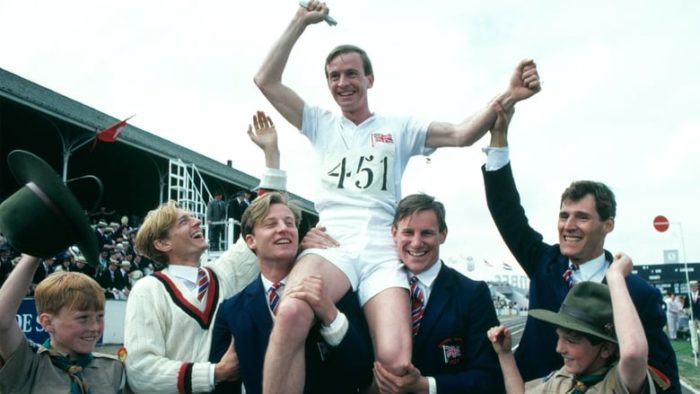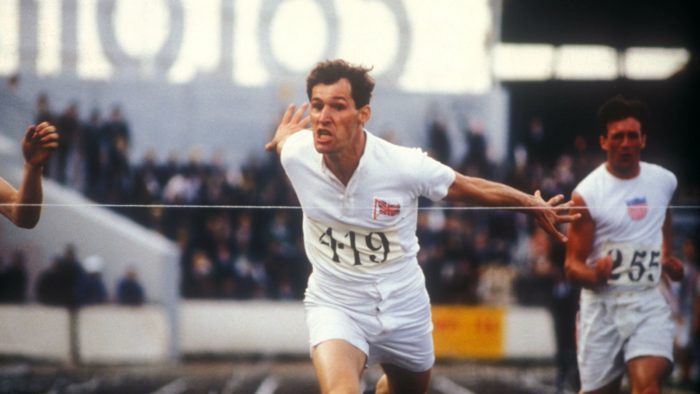
The 54th Academy Awards (1982)
Nominations: 7
Wins: 4
When I chose the films I did for these Oscars reviews, I was not intending to chart the course of British films at the Oscars, but here we are. After dominating the Oscar conversations throughout the ’60s, the ’70s were a pretty fallow period for the UK film industry in terms of prestige. I’m sure much of this has to do with the sheer amount of groundbreaking films filled with sex and violence that were coming out of Hollywood that decade, while the Brits struggled to keep up. However, Chariots of Fire seemed to rejuvenate both the British film industry as well as its chances at the Oscars, as there were considerably more UK films going head-to-head with the Americans at the Oscars throughout the ’80s. This, of course, is fitting considering Chariots of Fire is the story of some scrappy Brits going up against the big bad Americans at the 1924 Olympics.
Chariots of Fire chronicles the true story of several world-class runners, all of whom we see jogging on the beach in slow motion in the film’s opening sequence as Vangelis’s iconic score accompanies it. However, it most prominently centers on two men defined by their religions and status as outsiders — Eric Lidell (played by Ian Charleson) a Scott who is devoutly Christian and Harold Abrahams (Ben Cross), a Jew with a chip on his shoulder. We first meet Abrahams (and several other runners that pop up throughout the film) when he is a first-year student at Cambridge and proves himself to be a very determined runner while also budding heads with the snooty leadership of the school. We’re introduced to Lidell in his native Scotland where he’s shown to be a small-time celebrity due to his innate speed on the track, but is also conflicted about carrying on his missionary work.
The film does several jumps forward in time, taking us from 1918 up until the Olympic games in 1924. Throughout this period, we see both Lidell and Abrahams becoming more and more accomplished in the world of British track and field, which culminates when the two of them finally face each other in a race and Lidell, the one with clearly more natural talent, wins by just a hair. This further motivates Abrahams to become just as good as Lidell, so he enlists a professional trainer named Sam Mussabbini (Ian Holm) to help him achieve this. Then, once we finally get to 1924, both Lidell and Abrahams are recruited for the British Olympic team, along with many of Abrahams former classmates from Cambridge. The UK team are apparent underdogs going up against the best runners in the world from the U.S., but both Lidell and Abrahams manage to give them a run for their money.
I would say this feels like a pretty typical Best Picture in retrospect, but maybe didn’t at the time. It is after all a 20th century period piece that tells its true story in a fairly straightforward manner and manages to have a pretty feel-good, inspirational vibe to it. I think really the one thing that makes it unusual is that it’s an uplifting sports movie, which typically doesn’t play big at the Oscars. I can think of a handful of sports movies that have gotten Oscar attention in recent years, like Moneyball, Field of Dreams, Million Dollar Baby, etc. But really, Rocky is the only Best Picture winner I can think of that channels a similar vibe as Chariots of Fire. Though even Rocky has the veneer of a gritty ’70s character drama going for it, much like this movie is an inspirational sports movie dressed in costume drama garb.
This movie also does a pretty good job of carving out a distinct style that makes it feel a little more modern than your typical film set in the 1920s. Most notably, you have the great synth-heavy score from Vangelis, whose theme for Chariots of Fire ranks (fittingly along with the Rocky theme) as one of the most universal music cues we think of when we think of onscreen athletic triumph. The score also a bit of an innovator in showing that just because a movie is set in the past, it doesn’t necessarily need to contain nothing but stuffy period-appropriate music. Similarly, the way the film uses slow-motion and certain editing techniques makes the film feel a bit more modern. There are a couple of key races in the film where we see the race played over several times at different speeds and at different angles. This is a great way of getting over the fact that it’s hard to make short-distance running that compelling, since it sometimes lasts just a few seconds.
Apart from Ian Holm and John Gielgud in supporting performances, it is a little odd that a movie this famous and that won Best Picture has so many unrecognizable names in its credits. One sad reason for this that Ian Charleson died in 1990 from AIDS, becoming essentially the first famous person in the UK to die of the disease. It’s also by some weird coincidence that I’m reviewing this movie the day after Sean reviewed The Deer Hunter, since it sounds like Chariots of Fire director Hugh Hudson had a similar fate as Michael Cimino. After having a ton of success with this Oscar winner, he followed it up with Revolution, an Al Pacino vehicle set during the American Revolution that was a huge critical and commercial flop in 1985 that derailed Hudson’s career as well as Pacino’s for several years. It sounds like that film was hastily edited at the time and much like Heaven’s Gate has an underrated director’s cut, but at least for this one moment, Hudson was running along the beach in a moment of unqualified triumph.


